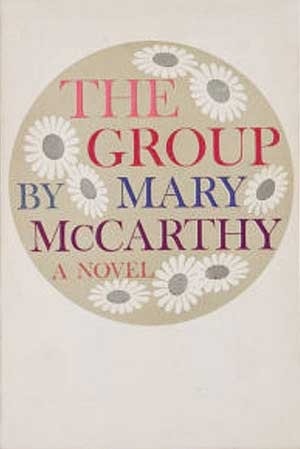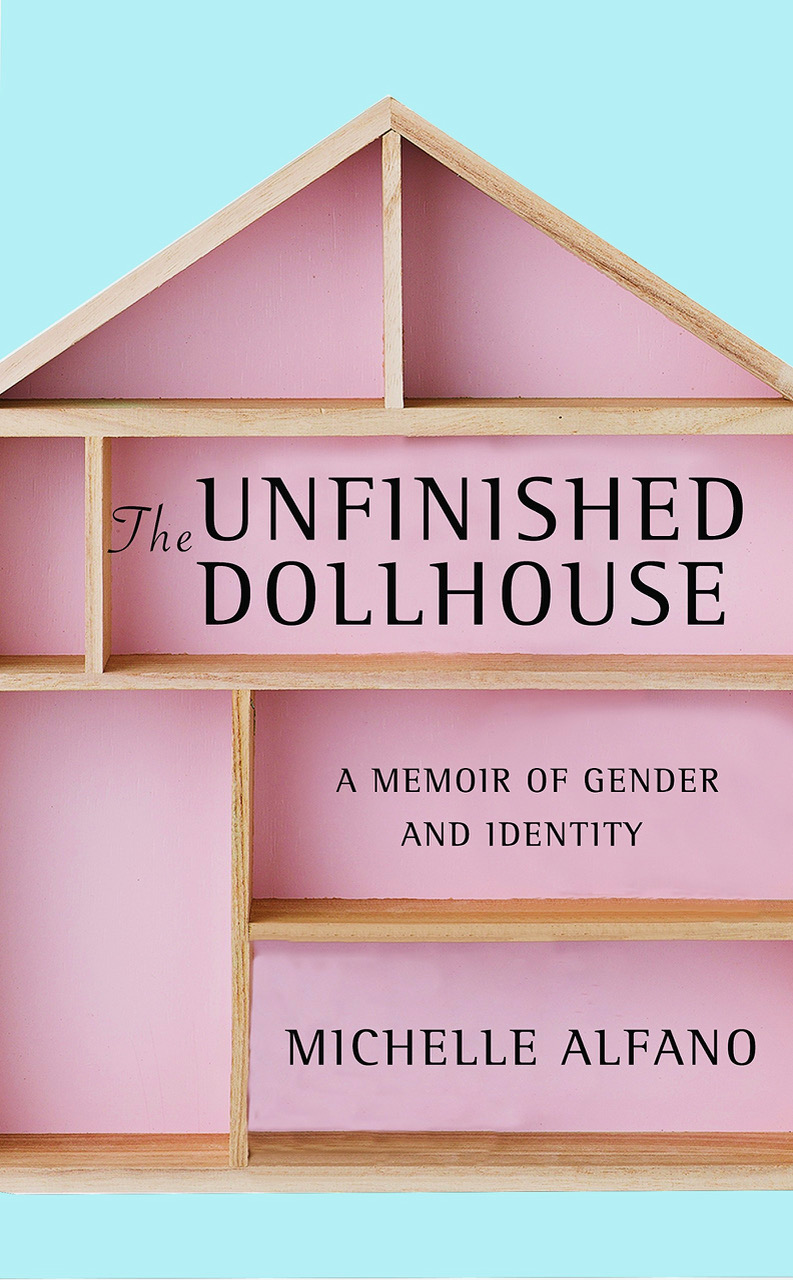The Group by Mary McCarthy (Harcourt Brace Jovanovich, 1963; republished Harcourt Inc., 1991) 487 pages
Fifty years since the publication of The Group, the reader still recognizes the power of its new "female" perspective on sex and womanhood. The Group depicts eight Vassar roommates (Class of '33) from the time they graduate to the cusp of America's involvement in WWII in 1940.
You can imagine the literary sneering when the book came out in 1963 (timely, yes, it coincided with Betty Friedan's revolutionary The Feminine Mystique) - just a bunch of hapless, naive college girls fumbling their way through womanhood (mostly ineptly). The critical reaction was not pretty.
Norman Mailer wrote a now famous review in The New York Review of Books in which he described the work as a "lady-book" and various characters thus: "all-but-dyke", "more pig than tootsie", "duncey broad", "a young New Dealer who has no breasts". By all means Norman, describe the literary characters on the basis of their appeal to you as women ... please do not resist thinking with your second, much smaller head. He writes: "Her book fails as a novel by being good but not nearly good enough ..." And some think David Gilmour is a sexist jerk ...
What Mary McCarthy was trying to do, what she did, was beyond the scope of his limited understanding. It still is for some. For some readers and some critics, merely to investigate the issues that women deal with, talk about, think about, is frivolous, secondary: sexual experience, birth control, adultery, lesbianism, unsatisfactory marriages, childbirth, child rearing and the politics of breast feeding ... all valid areas of fictional exploration from the female perspective.
Essayist Katha Pollitt's take on the book in The Nation is precisely right; it was about "the way very smart, educated women get trapped in the lesser life they are compelled to lead.”
McCarthy, famously, had a deadly accurate, if nasty, way of speaking truth to power.
 |
| A youthful McCarthy |
Kay, now a clerk at Macy's, is married to the insufferable bore Harald, an unsuccessful philandering playwright, who cheats on her with her fellow classmate Norine, has a chip on his shoulder due to the class differences between himself and his spouse, and says things like, "Go get me a coffee like a good girl" when irritated. I keep waiting for Kay to poison his coffee ...
Libby, a reader of manuscripts in a publishing house is advised: Publishing is a man's business ... you find [women] on the fringes, in publicity and advertising, or you find them in copy editing or reading proofs. Old maids mostly... She later morphs into a somewhat predatory literary agent and marries well. She seems to be the most successful and most disliked member of the group.
Norine, paramour of the hapless Harald, has her own issues: an impotent husband, a slovenly house, little ambition and no plans for the future.
Polly, a medical technician in a lab, who once dreamed of a medical degree, has no interest in being set up with eligible man. At the beginning we think we know what that means. But we don't. Flirting with Communism and with a Communist lover, Polly seems lost, unfocused, unfulfilled. Until she meets Mr. Right...
New mother Priss is dominated by her opinionated doctor husband who pressures Priss into accepting an unheated bedroom and no cuddling for their newborn son.
Lakey, icy, aloof, elegant Lakey ... she doesn't appear until the very end after a brief and mysterious appearance at the beginning. Lakey has moved up socially much to the shock and admiration of the group. They are still in awe of her.
But the men fare no better in McCarthy's sight lines. Which one of these non-entities should the women aspire to ensnare into matrimony or even merely sexual relations? Nils, the Norwegian "baron", who attempts to rape Libby then gets bored mid way by the prospect that she is a virgin? Blake, the impotent cuckold? Bitter, unsuccessful Dick who counsels Dottie to get birth control then never calls her back? Harald, the vaguely leftish, aspiring (not particularly successful) playwright living off his wife's store clerk wages who bullies his wife into an asylum and (spoiler alert) refuses to attend her burial after some disturbing conjecture about her sexuality? Gus, the gutless Communist, separated from his wife but still tied to her by their child and his psychoanalyst who can neither volunteer in the Spanish Civil War nor remain with his mistress whom he loves. Sloan, the overbearing, ambitious doctor who bullies his wife?
At times, it seems as if the eight Vassar women are thinly disguised slivers of the real McCarthy, significantly also a '33 Vassar graduate ... the philandering playwright Harald depicted here is not that different than McCarthy's first husband Harald Johnsrud. Polly's pro-Communist views were very much like McCarthy's until WWII. Like Libby, McCarthy worked as an editorial assistant for the publishing house. It was rumoured that the elegant beauty Lakey was a physical combination of McCarthy and her famous classmate Elizabeth Hardwick (who toyed with her own royal girl-toy in real life).
The casual and pervasive sexism, anti-Semitism and racism rankles - in the jokes made at the expense of the "coloured" maid, the Yiddish neighbours, or in the manner that the women are described and treated. McCarthy is writing of a pre-WWII world and the book was published during the pre-feminist consciousness depicted in the era of Mad Men ... and don't it show.
But McCarthy has a prescience that alarms and engages the modern reader. Women with education and many opportunities who persist in making poor choices? Anxiety about raising a child in a progressive manner? Conflicts between an educated female and a less successful spouse? These women are not failures. They are pioneers in the sexual revolution that was to come ... some failed, some succeeded. And McCarthy nailed their dilemma. Completely.
 |
| Some of the ladies in the film of The Group (1966) |











No comments:
Post a Comment